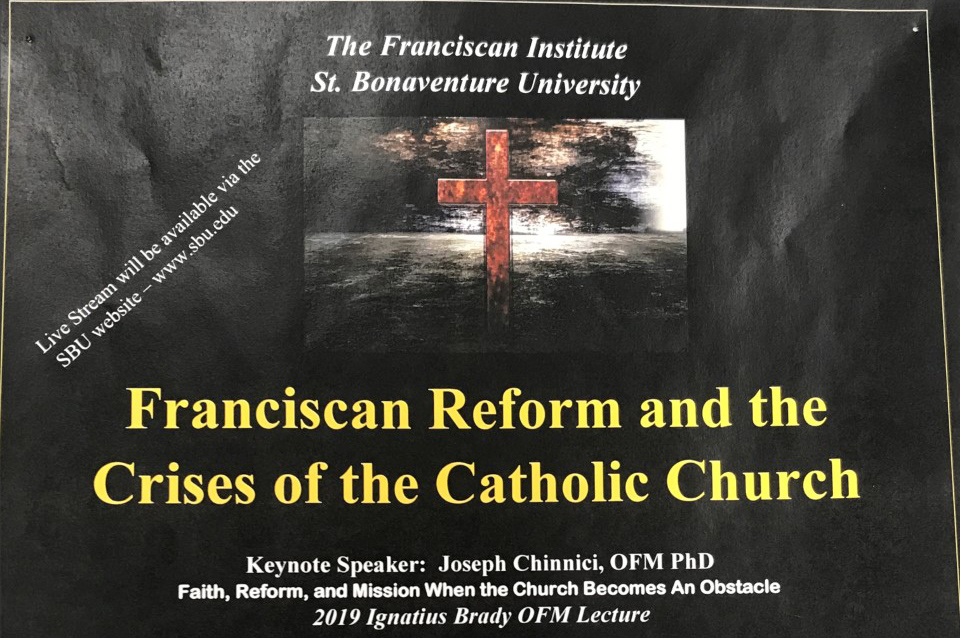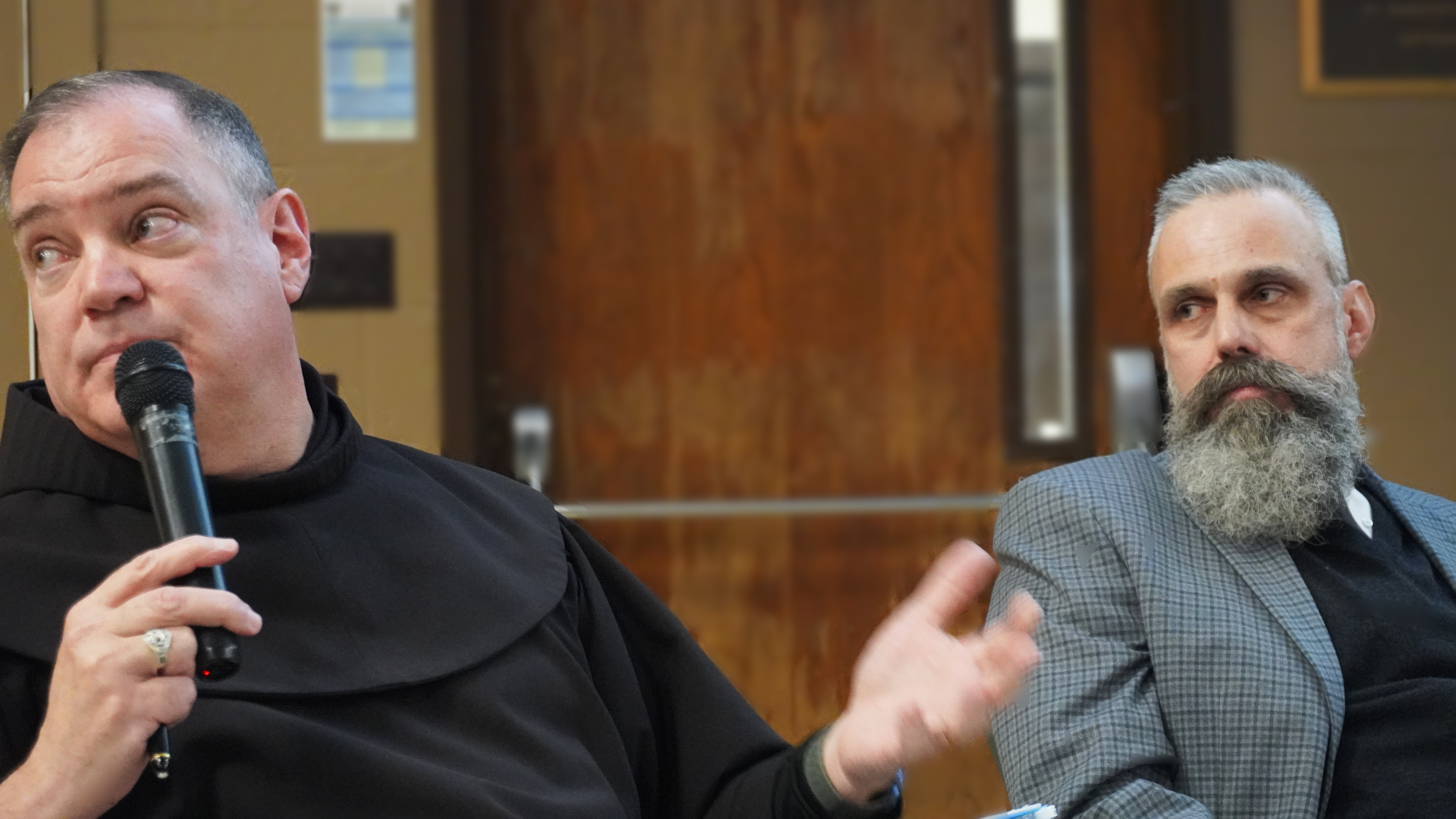Conference on church sexual abuse crisis called off due to victims’ concerns
On Monday, St. Bonaventure University cancelled a conference on the sexual abuse crisis in the Catholic church that was scheduled for Friday and Saturday.
The university intended for it to be an academic discussion on reform in the church and the Franciscan role in such reform, according to Fr. David Couturier, associate professor of theology and Franciscan studies and executive director of the Franciscan Institute of St. Bonaventure University. Couturier said the conference was called into question by a group of victims of the sexual abuse, who argued that such a conference was pointless without including the voice of any of the victims.
“We wanted to take a look at the historical tradition of Franciscanism that has been about renewal and reform for 800 years and see if there is anything that the historical legacy teaches us about what to do now,” said Couturier.
Couturier said that what was hoped to come out of the conference was guidance for the path ahead for Franciscans to address this issue.
A statement on the official St. Bonaventure University website said the Franciscan Institute spent months planning a specific path and structure for the conference, largely focused on historical context.
“What happened was that a few days early last week, we got a call from a TV reporter in Buffalo saying that they were getting reports that a group of victims were intending to disrupt the conference on the grounds that victims were not invited to speak,” said Couturier.
Couturier said at this point, he had a phone conversation with a person representing the victims. They had a long and productive dialogue, from which Couturier went and talked with his colleagues about what to do next.
“It was clear to me that the best thing to do was to first of all agree with the proposition that we need to hear the voice of victims,” said Couturier.
Couturier said that the best judgement was cancelling the conference. Couturier said the advocate for the victims that he was in contact with expressed the cancellation of the conference wasn’t their intention, but that they understood why the university chose that decision.
Kelly Fitzgerald, a freshman elementary education major who attends Couturier’s Ethical Leadership: Franciscan Values class and was planning on attending the conference reacted to the cancellation of the conference by asking, “Why?”
“They’ve had things around town that have had protests before, so I want to know why he did it,” said Fitzgerald.
Paris Freeman, a junior theater major, had a different perspective on the cancellation.
“I’m in favor of the victims. If you’re going to have a conference about that, they need a voice,” said Freeman. “That was cancelled rightfully.”
Fitzgerald said that the victims had a right to protest, but she still feels like the cancelling of the conference was a loss.
“This was supposed to be a big thing on campus. I feel like we should still be taught about it,” said Fitzgerald. “Maybe not a conference, but it should still be taught to students, or maybe off-campus.”
Freeman said they felt as if the situation could have possibly been handled better.
“The correct response wasn’t cancelling the conference. It was asking victims to join the conference,” said Freeman.
“The problem was, in the three or four days I had, I could not reorganize the conference that we had, as it was directed towards historical material, and that was what the scholars were coming for and that was what the advertisements presented,” said Couturier about the cancellation. “The victims group was asking for a different kind of conference.”
Freeman and Fitzgerald both said the conference could have been postponed, allowing the university to address these concerns.
“I want to know why they didn’t think it was a concern to not have victims in the conference to begin with,” said Freeman.
Couturier said he considered a lot of options moving forward after these concerns were brought to his attention.
“You can imagine, spending months to design this particular conference, getting the speakers, is a pretty big operation,” said Couturier. “I was hoping to have a conference that the Franciscan Institute could offer during the academic year.”
Couturier said he had no regrets in his choice, though.
“I’m not sad or downcast or angry at all,” said Couturier. “It is never a mistake to listen to the victims.”
Couturier said there were no earlier indications of unease about the conference until he received the phone calls that he did.
“The advertisement had been out for a while,” said Couturier.
Couturier said the later response was surprising, but may have had to do with a National Public Radio (NPR) interview he had in which he mentioned the conference that occurred closer to the time of the conference.
“I want to thank the university president, the provost, Tom Missel, the director of communications, because we had very good conversations about what to do and how to be responsible and sensitive,” said Couturier.
Couturier said that if the statement that the Franciscan Institute will continue to be an advocate for justice is what comes out of this, then it will have been worth the price.
By Landon Allison, News Editor
allisolj17@bonaventure.edu






